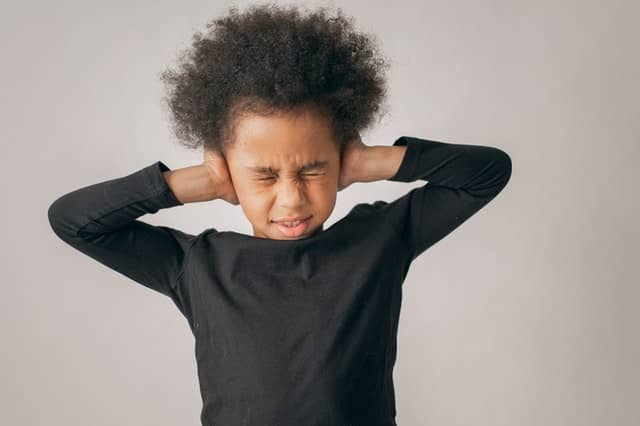Table of Contents
A Guide to Mood Disorders in Children
A mood disorder is defined as any disorder that primarily affects emotions. Mood disorders are also known as “affective disorders,” They dramatically impact one’s “affect” or emotional state.
Mood disorders can affect children and adults and can cause various symptoms that disrupt the child’s life at home, at school, and during their free time. Individuals concerned that their child may have a mood disorder should consider making an appointment for an evaluation with a local psychiatrist or mental health professional.
Types of Mood Disorders in Children

Multiple mood disorders can affect children, including the following:
- Major Depression: This disorder is characterized by persistent feelings of apathy or sadness. Children and teenagers who suffer from depression may lose interest in activities they previously enjoyed. Children may seem more angry or irritable, may express feelings of anxiety, and may suffer from an ongoing issue with low self-esteem.
- Dysthymia: This disorder can cause ongoing, low-grade depression. Children and teenagers coping with dysthymia may find that they’re often sad for no reason or experience a low mood as their default emotional state.
- Bipolar Disorder: There are many bipolar symptoms in children, but they may not always be recognizable to the untrained eye. Bipolar in children can cause them to cycle back and forth between a state of mild to severe agitation or euphoria, known as mania, and a state of mild to severe depression. A child undergoing a manic episode may seem agitated or constantly on edge, or overly excited and happy. Mania can lead bipolar children to make poor choices, steal, act out sexually, or engage in risky behavior. When the individual cycles into a depressive state, they may lose interest in school, abandon their friends, and seem to isolate themselves from the world. Bipolar disorder in children can cause symptoms that range from moderate to severe, but without treatment, the disorder will almost always worsen over time.
- Disruptive Mood Dysregulation Disorder: An individual suffering from this disorder cannot regulate or control their mood on their own. They may make poor decisions and have troubled social relationships as a result.
- Premenstrual Dysmorphic Disorder: Young women who suffer from this disorder may experience the symptoms of dysthymia or depression, but only when they are premenstrual. The disorder causes symptoms similar to those of PMS but in a far more severe and life-altering manner.
Recognizing the Symptoms of Mood Disorders in Children
Parents who feel that their child may have mood disorder in children symptoms should not attempt to diagnose the child. Instead, seek professional help if you notice the following symptoms in your son or daughter:
- Agitation: An agitated child may seem angry about nothing at all. The parents may notice that the child is frequently irritated, is easily angered by siblings, or yells when small details about the daily routine are changed. Irritability can be caused by several mood disorders and may also be brought on by anxiety, so it’s important to have this symptom treated by a professional.
- Sadness: A mood disorder in children can cause various expressions of sadness, including crying jags, feelings of hopelessness, and suicidality.
- Mania: Children with mood disorders may also experience mania or hypomania (a milder form of mania). Mania can lead to feelings of euphoria, delusions of grandeur, poor decision making, impulsivity, flight of ideas, and reckless or dangerous behavior.
- Angry Outbursts: Children with mood disorders may frequently appear angry and may have difficulty controlling their anger or exercising appropriate coping skills. These children may yell at parents, teachers, or siblings or lash out physically.
- Insomnia: Children with mood disorders may not sleep at all or may sleep fitfully through the night. Parents may notice that the child frequently wanders the house at night, asks to sleep with the parents, or is awake during odd hours of the night.
- Hypersomnia: Children with mood disorders may sleep for more hours than physically required. Depressed individuals may sleep for 12-16 hours per day yet still seem dizzy or sleepy. Parents may notice that their child does not want to leave their bed, even performing activities they previously enjoyed.
Available Treatment for Mood Disorders in Children
When a parent is concerned that their child has a mood disorder, several treatment options are available. However, many parents visit their pediatrician or general practitioner first. While this is one way to obtain help quickly, it may not be the best option for long-term treatment.
If an individual chooses to begin mood disorder treatment with a pediatrician, it may also be wise to ask for a child and adolescent psychiatrist or therapist referral. These skilled professionals possess the knowledge and training necessary to diagnose a mood disorder and treat it appropriately.
- Therapy: A therapist will work with a child or adolescent to evaluate behavior, learn about situations triggering negative behaviors, and develop positive coping skills. Therapists can help an individual learn important tools that they can use throughout life to cope with the symptoms of their mental illness. A therapist does not prescribe medication.
- Psychologist: A psychologist typically performs evaluation and psychological testing to determine if an individual suffers from any learning disabilities or neurological impairment. A psychologist does not usually prescribe medication.
- Psychiatrist: A psychiatrist is a medical doctor specializing in treating psychological disorders with various medications. The doctor will evaluate the patient’s symptoms and adjust medication to help control symptoms at each visit.
Treating mood disorders in children often requires a multi-tiered approach. First, parents may find that they need to visit a therapist and a psychiatrist to manage all mood disorder symptoms effectively. This allows the child to learn essential coping skills while the symptoms are controlled with various psychotropic medications.
How to Get Help for Your Family
Parents who need mental health treatment for mood disorders in children’s symptoms can contact a local psychiatrist’s office to schedule an evaluation. If the child or a family member is in immediate danger, the parent can visit the local emergency room for a mental health evaluation and possible hospitalization.
If the parent cannot get the child to the emergency room, local police or emergency response personnel can provide an escort. Individuals who feel that a family member is in direct danger should call the police or a local suicide hotline for an immediate referral.




